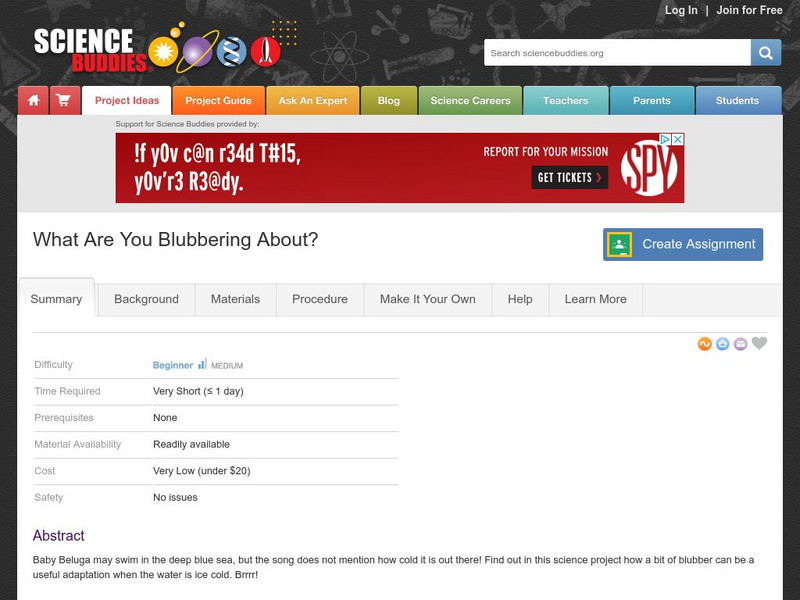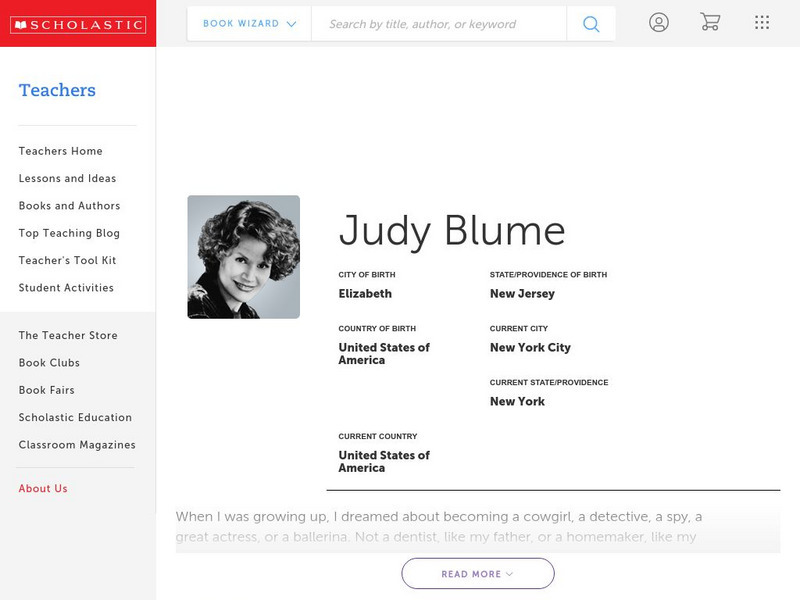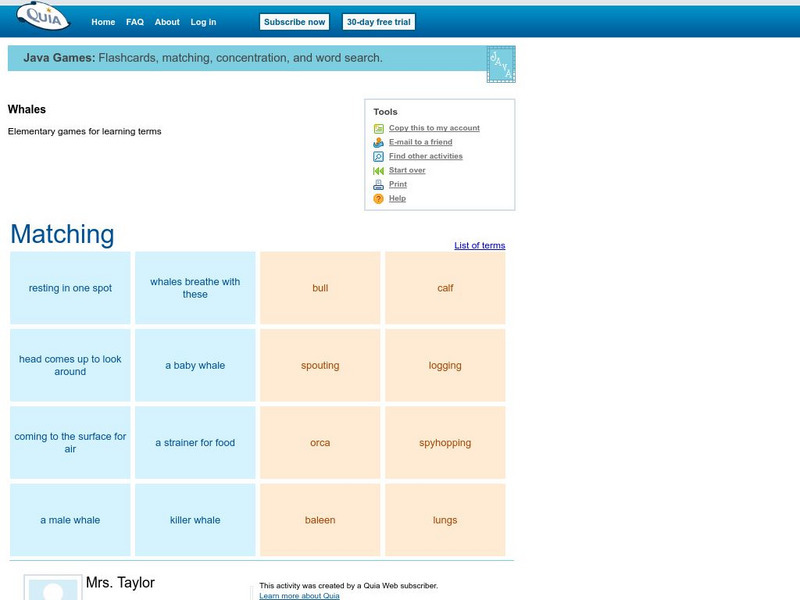American Museum of Natural History
Rubber Blubber Gloves
Using gloves, shortening, tape, and a lot of ice, participants experience the feeling of having blubber. The experiment's eight steps follow an informative page about blubber and animals that have it.
Curated OER
Blubber Gloves
The ways that animals adapt to their environments is quite remarkable. In this life science instructional activity, fifth graders take a look at some of the ways that aquatic animals that live in Arctic or Antarctic waters survive. They...
Curated OER
In the Company of Whales
Students examine whales and how they migrate. In this whale lesson students research whales and their migration patterns.
Curated OER
Blue Planet: Frozen Seas
Students study the animals from the Arctic and how they have adapted. In this ocean lesson students create a poster about their given animal and present it to the class.
Curated OER
Ocean Exploration
Young scholars explore whales. In this animal adaptation and whale lesson, students access prior knowledge about whales from previous lessons, then use background knowledge to predict the eating strategies of a baleen whale and a toothed...
Texas Instruments
How Do Pinnipeds Stay Warm?
Learners experiment to determine ways different types of insulation materials work. In this animal adaptation lesson plan, they make hand coverings from plastic bags, shortening, feathers, and wool. They observe effects of these...
Curated OER
Whale Blubber
Students examine the purpose and characteristics of whale blubber. They work together to complete an experiment to test the fat as an insulator. They discover how humans use materials to protect them from the cold.
Curated OER
How Does Whale Blubber Work?
Students perform an experiment to find out how whale blubber keeps whales warm in cold temperatures. They use Ziploc bags lathered in shortening to simulate whale blubber. They put their hands in cold water, both with and without the bags.
Curated OER
Blubber: Discussion Guide
Students read Blubber by Judy Blume. In this Blubber discussion lesson, students answer pre-, during, and post- reading of the novel to assist them with comprehension. Themes addressed are problem solving, perspectives, leadership, and...
Curated OER
Insulation and Buoyancy
Students predict whether their hands be warmer in ice water with or without a blubber mitten. They construct a blubber mitten using plastic, Crisco and compare their results with a control group. They observe how this affects buoyancy too.
Science Buddies
Science Buddies: What Are You Blubbering About?
Baby Beluga may swim in the deep blue sea, but the song doesn't mention how cold it is out there. Find out in this short project how a bit of blubber can be a useful adaptation when the water is ice cold.
Scholastic
Scholastic Instructor: Wonderful World of Whales
Have your students ever wondered what it is like to be a whale swimming in ice cold water. In this lesson plan they can experience that as well as learn other facts about the lives of whales.
San Diego Zoo Global
San Diego Zoo: Polar Bears
Listen to a roar (with RealPlayer) and learn about the lives of polar bears. [0:52]
San Diego Zoo Global
San Diego Zoo: Sea Lion
This resource provides detailed information about the sea lion, as well as several pictures and an audio clip. [1:34]
PBS
Pbs Teachers: The Great Whales: Make a "Blubber Glove"
Examine the whale's layer of insulating fat, known as blubber, and test the effectiveness of fat as an insulator. Discuss how humans use insulating materials to protect themselves from exposure to cold temperatures.
Scholastic
Scholastic: Judy Blume's Biography
Discover more about the life and work of Judy Blume with this resource. Students and teachers will gain a different perspective of this author after exploring this resource.
Other
Salariya: You Wouldn't Want to Sail on the Whaling Ship Essex!
This online book for younger readers tells pitfalls of sailing on a New England whaling ship. Although a cartoon format, it contains valid and useful information about whaling in New England.
Quia
Quia: Whales Elementary Games for Learning Terms
Match the squares and learn key whale terms. Fun with immediate feedback.
ClassFlow
Class Flow: Marine Mammals
[Free Registration/Login Required] This flipchart investigates what makes a mammal, discusses where they live and focuses specifically on the anatomy of a whale.
A to Z Teacher Stuff
A to Z Teacher Stuff: Polar Bears
This learning activity from A to Z Teacher Stuff explores what keeps polar bears warm in the Arctic. The activity allows students to experience what a layer of "blubber" protection is like.





















